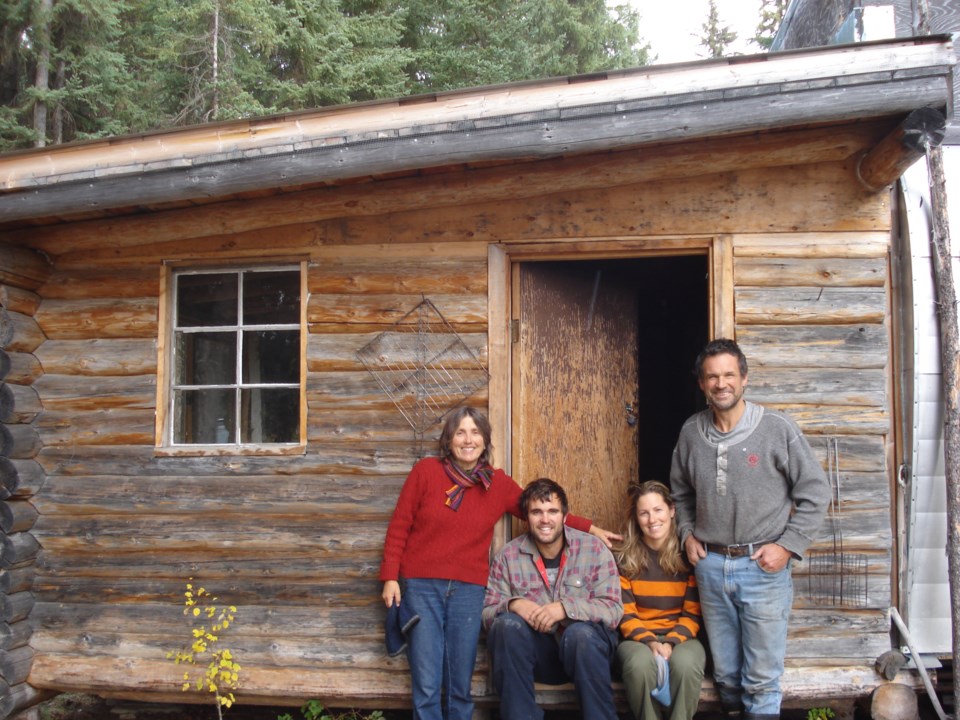Bruce McLellan has spent his life trying to dispel misconceptions about grizzly bears.
With his book, Grizzly Bear Science and the Art of a Wilderness Life: Forty Years of Research in the Flathead Valley, the renowned bear expert takes his passion for knowledge-sharing one step further.
Released Nov. 24, 2023, the book covers the expanding gap between what is known about grizzlies by the general public and what is known by scientists.
A leading bear expert with 43 seasons in the field, McLellan’s book tells the story of 200 radio-collared bears, many of which had their lives cut short by humans.
McLellan and his wife began the Flathead grizzly project when the couple were just in their mid-20s. They built a log cabin on the bank of the Flathead River, had kids, and raised them in the wilderness.
“Once a grizzly bear gets to be about two years old, they end up being killed by people,” he said. “They very, very rarely die naturally. They mostly end up getting killed by people in one way or another. Most bears die because people kill them.”
The author originally started researching elk and mountain goats before taking the step up towards the slightly larger mammals.
“I just liked wildlife and large mammals in wild places,” he said. “It ended up to be grizzlies because that’s what the job ended up to be for me in 1978 after I finished working with mountain goats. They are all interesting. Mountain goats are pretty fun too!”
The McLellans loved the time they spent in the Flathead. Their kids eventually earned their own PhD and master’s degrees in the ecology of the amazing animals.
“I look back on it very favourably, and so do my family. It wasn’t all easy,” said McLellan. “We had no attractants near our camp. We had bears come through our camp, but we only ever had concerning events once or twice. In general, when grizzly bears come near someone’s camp, they know they are near people. You can’t really surprise them. Even when they are surprised, they are almost always fairly tolerant. We never really had any issues.”
The technology has also changed enormously since McLellan first started researching bears, he said—everything from radio collars with satellite tracking and DNA sampling of hairs to simpler innovations like portable cameras.
“We started using film cameras in the 1980’s. We were getting 36 pictures per roll,” he said. “Now, there are game cams. Laptops didn’t even exist.”
McLellan said grizzly conflicts are far more rare than most people think.
“Unless they are surprised, they are not really that aggressive of an animal,” he said. “They will get defensive over a kill if they are surprised. I have chased grizzlies off kills many times. Females with cubs can get excited if you surprise them. It’s incredibly rare that grizzlies ever attack anyone if they are in a farmer’s field or near people. There are thousands of recorded interactions between people and grizzlies in Yellowstone but attacks are very, very rare.”
McLellan understands Sea to Sky residents’ concerns around coexistence, and he knows the local bear population well, having started working in the area in about 2004.
He said people living in the Sea to Sky can look at other parts of Canada for tips on living with grizzlies. “There are 15,000 people living in the Elk Valley,” he said. “They co-exist with 80 different grizzly bears in that valley. There are other places like that, too. Coexistence is definitely doable. It takes more effort and tolerance on people’s part. I think in 10 or 15 years from now, people won’t get quite as excited to see grizzly bears on the side of the road. We also have to be aware and manage these bears.”
Grizzly Bear Science and the Art of a Wilderness Life: Forty Years of Research in the Flathead Valley is available through .




